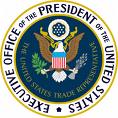 Last week, the U.S. Trade Representative (USTR) released the 2016 Special 301 Report. The report satisfies the longstanding legislative requirement that it identify “those foreign countries that deny adequate and effective protection of intellectual property rights (IPR), or deny fair and equitable market access to United States persons that rely upon intellectual property protection.” Countries are either identified as a Priority Foreign Country (which triggers a process that can lead to sanctions) or placed on the Priority Watch List or the Watch List.
Last week, the U.S. Trade Representative (USTR) released the 2016 Special 301 Report. The report satisfies the longstanding legislative requirement that it identify “those foreign countries that deny adequate and effective protection of intellectual property rights (IPR), or deny fair and equitable market access to United States persons that rely upon intellectual property protection.” Countries are either identified as a Priority Foreign Country (which triggers a process that can lead to sanctions) or placed on the Priority Watch List or the Watch List.
The World Trade Organization prohibits Members from unilaterally sanctioning each other, so it has become rare for a country to be included as a Priority Foreign Country. However, this year a new law requires USTR to develop “action plans” with countries on the Priority Watch List and allows “appropriate actions” if the U.S. is unsatisfied with its trading partners’ progress on these plans.
Annex 1 of this year’s report describes USTR’s new tasks under the Trade Facilitation and Trade Enforcement Act of 2015:
First, USTR must assess a country’s protection and enforcement of trade secrets when considering the country’s listing in the Special 301 report. Second, “action plans” are required for each foreign country that USTR has identified for placement on the Priority Watch List and that has remained on that list for at least one year. Third, USTR must provide to the Senate Finance Committee and to the House Ways and Means Committee a description of the action plans developed for Priority Watch List Countries and any actions taken by foreign countries under such plans. Lastly, for those Priority Watch List countries for which an action plan has been developed, the President may take appropriate action if the country has not substantially complied with the benchmarks set forth in the action plan.
As reported by Inside U.S. Trade, Ambassador Michael Froman told reporters that USTR will develop the action plans by June 11 “with concrete benchmarks to hold countries accountable for IP-related trade practices that disadvantage American creators and innovators. We’ve got stronger and better tools to carry out our task this year and in the years to come.”
At least two of the countries included in the report criticized the unilateral Special 301 process.
- Indian Commerce Minister Nirmala Sitharaman gave a statement to the Lok Sabha (Lower House of the Legislature): “The Special 301 Report issued by the United States under their Trade Act of 1974 is a unilateral measure to create pressure on countries to enhance IPR protection beyond the TRIPS agreement. Under the WTO regime, any dispute between two countries needs to be referred to the Dispute Settlement Body of the WTO and unilateral actions are not tenable under this regime.”
- Chilean General Director of International Economic Relations Andrés Rebolledo said in a statement: “This instrument is created unilaterally by the United States, and it is outside the dialogue mechanism contained in the bilateral trade agreement between our two countries. It does not contribute to the cooperative spirit that has proven successful in different areas of our economic, commercial social, and political relationship… Chile will continue moving in the same direction that has worked in recent years, seeking balance in the development and implementation of public policies on intellectual property.”
The countries on the 2016 Priority Watch List are:
- Algeria
- Argentina
- Chile
- China
- India
- Indonesia
- Kuwait
- Russia
- Thailand
- Ukraine
- Venezuela
The countries on the 2016 Watch List are:
- Barbados
- Bolivia
- Brazil
- Bulgaria
- Canada
- Colombia
- Costa Rica
- Dominican Republic
- Ecuador
- Egypt
- Greece
- Guatemala
- Jamaica
- Lebanon
- Mexico
- Pakistan
- Peru
- Romania
- Switzerland
- Turkey
- Turkmenistan
- Uzbekistan
- Vietnam
Additionally, four countries will be the subject of an out-of-cycle-review: Colombia, Pakistan, Spain and Tajikistan.




